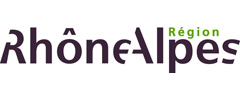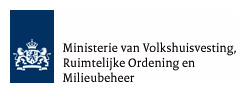Uganda
Political and Economic Developments - Post independent Uganda has gone through periods of political stability and turmoil. After Uganda obtained independence from British colonial rule in 1962, the country underwent a relatively stable decade until a coup in 1971 led the country to become a failed state. In the 1980s, a Civil War ensued, where the Lord’s Resistance Army (LRA), which was formed in 1987, fought against the Ugandan government, leaving millions displaced and thousands dead. In 2005, the LRA was removed, but continues to operate in other states. The ramifications of the Civil War have been immense, not only in terms of casualties, but also in terms of political and economic developments.
Uganda is currently a presidential republic, has a multi-party system, and requires that each district elect a woman representative for the National Assembly. Since independence, Uganda has witnessed relatively satisfactory economic growth and economic decline. Regardless of economic trends, the post independence period has been hampered by common binding constraints. Agriculture has for a long time been the core sector of Uganda’s economy, providing a basis for growth in other sectors and significantly contributing to GDP, employment and food security. However, between 2000/01 and 2008/09 the share of agriculture to GDP fell rapidly and accounting for 22.8 percent share of the national GDP in 2009/2010 (from 53.9 percent in 1985/86). On the other hand, the share of labour force in agriculture increased and was at 75 percent in 2005/06. These trends contribute to low productivity in agriculture which undermines the growth potential of the economy and contributes to issues related to food insecurity.
The wellbeing of the majority of Uganda’s people is tightly bound to agriculture that is rain fed and thus susceptible to the continued impacts of climate change. Population structure and migration patterns, driven by social and political factors, are closely linked to inequality and poverty, and these conditions also influence the environment in important ways. Despite initiatives and efforts by the Government of Uganda and the relatively high economic growth rate, the realisation of food and nutrition security for Uganda remains elusive. Even with claims of a marked reduction in poverty levels, an estimated 9 million people still live below the poverty line. Poverty is most pronounced in rural areas, and the features of rural poverty are multi-dimensional and include food shortage, malnutrition of children, frequent illness with high rates of HIV/AIDS, and widespread illiteracy. The distribution of poverty is uneven, with areas in the east and north being the poorest.
National Gender Policy
Over the last decade, the Government of Uganda adopted and commenced the vigorous implementation of a national gender policy, outlining strategies and interventions for the empowerment of women. This has involved strengthening the legal framework, initiating legislation on domestic relations, sexual offences, and employment. This has been in clear recognition of the fact that gender equality and equity are key determinants of sustainable economic growth and development. These measures provide for a woman representative for every district in Parliament and the reservation of one-third of the seats on each local council for women. These provisions were consolidated in the 1995 Constitution. The Local Government Act (1997) operationalised aspects of the provisions for affirmative action dealing with representation of marginalised groups in local government structures. Implementation of affirmative action policy has resulted in a marked increase in the number of marginalised groups (women, people with disabilities, youth, and workers) in politics and decision-making thereby changing the landscape of politics and decision making in Uganda.
WECF partners
WECF cooperates with several partners based in Uganda. WECF’s main partner is Alternative Technologies (AT), which focuses on poverty reduction through women’s economic empowerment in rural areas, focussing on conservation agriculture, access to energy, collective marketins and climate change adapatation and mitigation.
AT improves the capacity of farmers (especially women) and their advisers to reassess practices and innovate by helping them to recognize changing conditions. Much of the farmland in the proposed project area was cleared of forest and savannah vegetation in response to needs for increased food production over the last 30 years. Subsequently, the accumulated soil organic matter was exposed, leading to rapid mineralization and leaching as a result of heavy seasonal rains. Repetitive ploughing has also not helped in conserving the soils. This is evidenced by the current low productivity levels.
Conservation Agriculture (CA) is an attempt at promoting a more comprehensive approach to natural resource management (NRM) by integrating the environmental, technical, economic and social dimensions. The conversion from conventional agriculture to CA can be seen as a movement towards the restoration of natural resources, integrating biological considerations into the soil / plant / atmosphere continuum while responding to the challenges of climate change. The focus of AT is on conservation agriculture also enables a unique integration of technical factors (e.g., soils, water, residue management, biomass production, livestock, agro-forestry, etc.) and socio-cultural factors (e.g., markets and pricing, policies and institutions, common property management, land tenure, etc.). However, given that the transition to CA may be challenging, a comprehensive vision that takes account of all important system interactions, is necessary for the effective and equitable introduction of CA. Other important features of AT include knowledge sharing within and among regions; and strengthening the capacity of Ugandan CSOs to stimulate networking and knowledge-sharing on conservation agriculture practices within country.
Women constitute a major component of agricultural workforce. They have, however, lagged behind in use of improved crop production and processing tools and machinery. A number of gender neutral and simple devices/equipment for crop production and processing have been developed. Their adoption by women will not only help improving agricultural production but will also elevate the status of women through better jobs and greater role in the economy of the family.
In particular, Women empowers rural women by enhancing their awareness, knowledge, skills and technology use efficiency so that agricultural production multiplies at a faster pace, environmental degradation is reduced and conservation of resources is practised earnestly, thereby, facilitating overall development of the society. All this signifies the importance of having a full understanding of the role and contribution of farm women so that the extension services may accordingly be devised and geared to fully integrate them in agriculture by better serving their specific needs and interests. It is the concern for their integration in the process of agricultural development, which has today become instrumental for policy debates, research initiative and organisational efforts from women’s perspective.
More information on AT can be found here.
Related Projects
Uganda: Promotion of Healthy and Economical Agriculture and Livestock Farming
With simple methods and means, agricultural cultivation methods and local livestock farming are improved and made more profitable. This project is co-financed with an existing project in Uganda: 'Better living conditions, less rural migration',.
21.06.2018
Uganda: Better Lives- Less Rural Migration
The aim of this project is to improve the living conditions of the rural, young population through a more sustainable agriculture, based on organic and conservation agriculture methods.
27.10.2017
Crowdfunding Project: Biogas Toilets for deprived families in Uganda
Via a crowdfunding campaign WECF collected more than 4.600 Euro to fight the sanitary grievances in rural Uganda. Thanks to over 50 donations WECF builds in cooperation with our local partner organization ARUWE 17 Biogas Toilets in Mulagi Sub-County.
01.07.2016
Bridging the knowledge gap - Demo farm in Uganda
In cooperation with our local partner organization ARUWE, WECF builds in Uganda a demonstration farm in order to improve the education of local farmers, present sustainable technologies and increase the people's lifequality
03.05.2016 | WECF Project
Promotion of green technologies in Uganda
In cooperation with our local partner organization ARUWE, WECF implements a project in Mulagi Sub-county (Uganda) to promote sustainable technologies for renewable energy
03.05.2016 | WECF Project
Improving education, sanitation and food security in Busi parents' primary school
By providing hygienic toilets with privacy and hand wash facilities, WECF improves in cooperation with local partner ARUWE education and sanitation conditions in Busi parent's primary school (Uganda)
08.04.2016 | WECF Project
Safe drinking water and sustainable energy for rural Uganda
Improving living conditions in rural Uganda through sustainable technologies for renewable energy, agriculture and water
08.06.2015
A call for help from the Kayenje School
Building ecosan toilets at Kayenje Primary School in Uganda
16.12.2014 | WICF Project










































